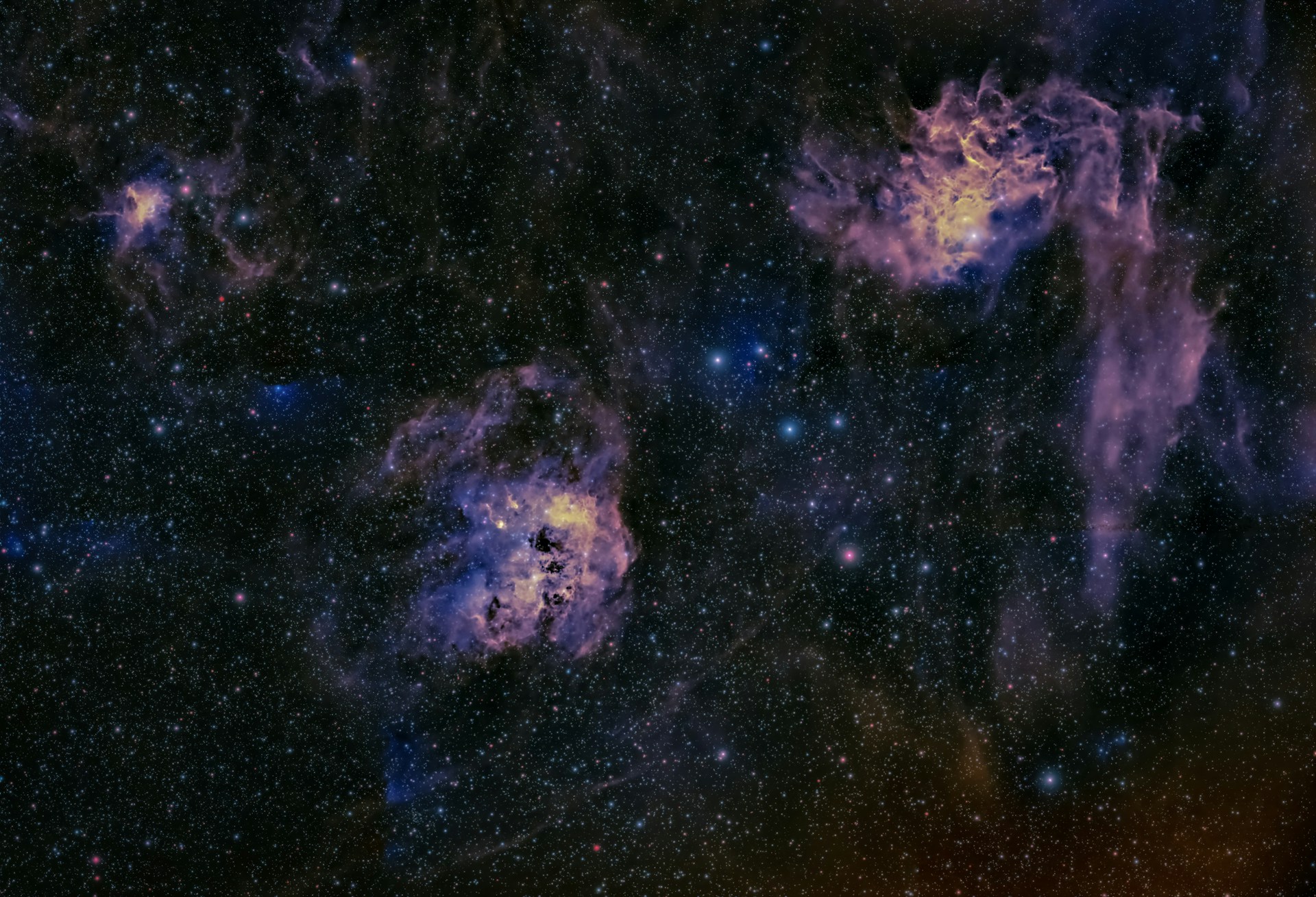Astrology and astronomy. These two words sound alike, and some people even use them interchangeably, but they couldn’t be more different. If you’ve ever wondered what makes astrology different from astronomy—or why it even matters—then you’re in the right place. We’ll break down the core differences, dig into their history, explore how they’re used today, and clarify why it’s worth understanding both.
What Are Astrology and Astronomy?
Let’s kick things off with some simple definitions. Astrology and astronomy both focus on the stars, but they approach the sky in completely different ways.
Astrology: Interpreting the Stars for Personal Insight
Astrology is all about reading the positions of planets, stars, and other celestial bodies to gain insight into human affairs. In other words, astrology claims that the movements and alignments of these objects can influence or reflect aspects of our lives—whether that’s your personality, your relationships, or the general energy of a certain day.
You’ve probably seen this in the form of horoscopes or zodiac signs. But keep in mind, astrology isn’t considered a science. Instead, it’s a belief system that many people use for guidance or self-reflection.
Astronomy: The Scientific Study of the Universe
Astronomy, on the other hand, is a full-fledged science. It involves studying everything in outer space—planets, stars, galaxies, black holes, you name it—and understanding the physics and laws that govern the universe. Astronomers use telescopes, satellites, and a lot of math to make sense of things like star formation or the behavior of distant planets.
Unlike astrology, astronomy deals in observable facts and measurable data, making it one of the most important branches of science for our understanding of the cosmos.
So, at its core, astrology is more about interpreting meaning, while astronomy is about finding out what’s really out there.
A Shared History, But How the Two Fields Split
If you think astrology and astronomy seem to have some overlap, you’re not wrong. At one point in history, these two fields were closely intertwined. But things took a different turn as humans advanced their understanding of the universe.
A Time When They Were One
Way back in ancient times—think Babylonian, Egyptian, and Greek civilizations—there wasn’t a clear distinction between studying the stars for scientific purposes and using them to predict personal or earthly events. The sky was humanity’s biggest mystery, and both astrology and astronomy helped people make sense of it. They believed the heavens could explain everything from the weather to who would win a battle.
The early astrologers were often also the first astronomers, tracking the positions of stars and planets with precision. In fact, many ancient structures, like Stonehenge and the pyramids, were built with an eye on the stars, reflecting a deep connection between cosmic observation and human activity.
The Scientific Revolution
Fast forward to the Renaissance and Scientific Revolution in the 16th and 17th centuries, and this is where things really began to change. Pioneers like Nicolaus Copernicus, Galileo Galilei, and Johannes Kepler started questioning the traditional views of the universe. Copernicus famously put forth the idea that the Earth revolves around the sun—an idea that went against many astrological beliefs of the time.
As more evidence and scientific tools emerged, people started to realize that studying the stars could lead to concrete, provable discoveries about the physical universe. Astronomy, as a field, became all about observation, data, and evidence. Meanwhile, astrology stayed focused on interpreting the stars in a more symbolic way.
This split was solidified in the 18th century, and since then, astrology has remained a belief system, while astronomy has grown into a rigorous science.
Astrology vs. Astronomy in Everyday Life
These days, both astrology and astronomy have very different roles in our lives, and they serve completely different purposes. Let’s look at how each field is used today.
Astronomy: Understanding the Universe and Improving Technology
Astronomy plays a huge role in our everyday life, even if you don’t think about it. Have you ever used GPS to get somewhere? Thank an astronomer. Those satellites we rely on to navigate are positioned in space thanks to the work of astronomers who track the movement of celestial bodies. Astronomy also helps with weather forecasting, space exploration, and even the development of new technologies.
And don’t forget the bigger questions. Thanks to astronomy, we know about black holes, galaxies far away, and even the origins of the universe. It’s a field that helps us understand our place in the grand scheme of things.
Astrology: Guiding Personal Decisions and Self-Reflection
Astrology, on the other hand, is more personal. People turn to astrology for insight into their personalities, relationships, and even major life decisions. Whether it’s checking your daily horoscope or doing a deep dive into your birth chart, astrology offers a way to reflect on your strengths, weaknesses, and potential life paths. Some people use it for comfort or guidance in times of uncertainty, while others just find it fun to see how the planets might be influencing their mood that day.
But it’s important to remember: astrology isn’t backed by scientific evidence. It’s more like a personal tool for reflection than a set of hard facts about the universe.
Science vs. Interpretation
While astrology and astronomy both look to the sky, they go about it in totally different ways. Let’s dig into the methods each one uses to explore the stars.
Astronomy’s Scientific Approach
Astronomy is all about data. Astronomers rely on observation, experimentation, and mathematical models to understand the universe. They use high-tech tools like telescopes (both on Earth and in space), satellites, and advanced computer simulations to gather information about stars, planets, and galaxies. And because astronomy is a science, every discovery has to be backed up by evidence—things like measurements, observations, and mathematical predictions.
This scientific approach allows astronomers to make predictions about things like when an eclipse will happen or how a planet’s orbit will change over time. It’s all about gathering concrete, observable facts.
Astrology’s Interpretive Approach
Astrology, on the other hand, takes a more symbolic and interpretive approach. Astrologers look at the positions of planets and stars at the time of your birth to create a birth chart, which they use to give insights into your personality and life path. Instead of telescopes and satellites, they use charts, calculations, and sometimes specialized software to figure out how celestial alignments might influence your life.
There’s no scientific evidence that the positions of celestial bodies affect human behavior, but astrology can still be a useful tool for people who enjoy the self-reflection it offers.
First, let’s talk about astronomy. You might not realize it, but astronomy plays a key role in some of the most important advancements in modern technology and science. The ability to study and understand the cosmos has led to innovations that directly impact our everyday lives—things like satellite communication, space exploration, and even the technology used in our smartphones.
Astronomy also deepens our understanding of fundamental questions about existence. Are we alone in the universe? How did the universe begin? These are questions that astronomers are actively trying to answer. And while not everyone spends their time thinking about black holes or dark matter, the discoveries in astronomy continue to shape our knowledge of the universe and inspire future generations of scientists, engineers, and explorers.
Astrology for Personal Insight
While astrology isn’t a science in the traditional sense, it holds a special place in the lives of millions of people. Astrology can be a powerful tool for self-reflection and personal growth. People turn to astrology for guidance, whether it’s about love, career, or understanding themselves better. There’s comfort in the idea that the movements of the planets could reflect some of the ups and downs in your life, giving you a framework to make sense of things.
It’s important to understand that astrology’s purpose is symbolic and interpretive, not scientific. But that doesn’t make it any less meaningful for those who find value in its insights. In fact, many people find that using astrology to reflect on their lives helps them navigate challenges or embrace opportunities.
Why Understanding the Difference Matters
Here’s why it’s crucial to understand the difference between astrology and astronomy: When we mix them up, we blur the line between science and belief. Astronomy relies on observation and evidence to make discoveries about the physical universe. It pushes the boundaries of what we know and directly impacts things like technology, space travel, and even climate studies.
Astrology, while meaningful for many, is about personal interpretation. Understanding that distinction allows us to appreciate both for what they are—without expecting astrology to provide scientific answers or demanding that astronomy provide personal insights.
Knowing the difference also helps us have more informed conversations. You can love astrology for the fun and introspection it brings, while also respecting astronomy as a vital branch of science. There’s room for both in today’s world, and recognizing their unique purposes enriches our understanding of both the stars and ourselves.
So, what’s the takeaway? Astrology and astronomy both have their roots in humanity’s fascination with the sky, but they’ve gone in very different directions. Astronomy is a science, rooted in observation, data, and a drive to understand the universe at large. It’s responsible for incredible advancements that shape modern life. Astrology, on the other hand, offers a symbolic way to explore our inner worlds, helping people reflect on their personalities, relationships, and life decisions.
Understanding the difference between these two fields matters. It helps us respect both for their unique contributions—whether you’re stargazing through a telescope or checking your horoscope for the week. In the end, both astrology and astronomy invite us to look up, wonder, and ask questions about ourselves and the universe around us.
















